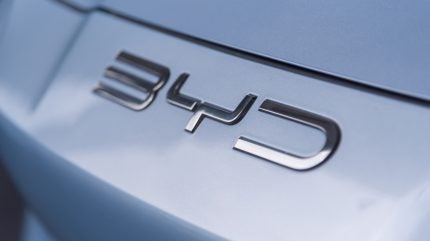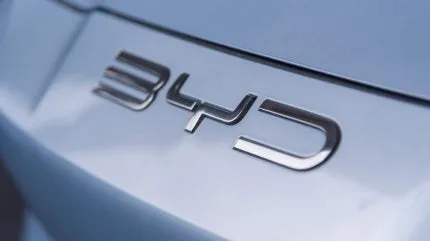
Chinese electric-vehicle (EV) manufacturer BYD and Japanese retail group Aeon plan to form a sales partnership before the end of the year, Nikkei Asia reports.
Under the agreement, Aeon will establish dedicated EV sales sections inside roughly thirty of its shopping centres and general merchandise stores across the country.

Discover B2B Marketing That Performs
Combine business intelligence and editorial excellence to reach engaged professionals across 36 leading media platforms.
According to the report, these in-store sections will act as intermediaries for BYD, taking orders and arranging sales contracts.
They will also display vehicles in cooperation with BYD’s existing dealer network in the country.
Looking ahead, Aeon aims to import BYD vehicles directly, set its own pricing, and run original promotions.
Planned incentives include Waon e-money reward points and subsidies for home charger installation.
Combined with central and local government support, total purchase incentives could reach around Y1m ($6,620), potentially lowering the price of BYD’s compact Dolphin from Y2.99m to about Y2m.
BYD is growing its dealer footprint in Japan and intends to increase the number of authorised dealers to 100 by year-end.
Aeon’s EV sections will be located close to those dealers within its commercial hubs.
The retail group operates 164 outlets nationwide.
The arrangement could alter Japan’s conventional vehicle distribution model, which has traditionally been dominated by manufacturer-affiliated dealerships responsible for new‑car sales and aftersales services.
BYD has been expanding in Japan amid weaker sales in China; at the end of March, it reported about Y150bn of vehicles in stock.
In September, BYD accounted for around 20% of EV imports to Japan, according to the Japan Automobile Importers Association.
The company also plans a Japan‑targeted mini EV for 2026 and was reported earlier this year to be considering a plug‑in hybrid introduction.
EV sales in Japan remain small relative to other markets.
Between April and September, 28,501 EVs (encompassing mini vehicles) were sold, up 3% year‑on‑year but representing only about 1% of all new car sales, a gap partly attributed to slower development of charging infrastructure.









